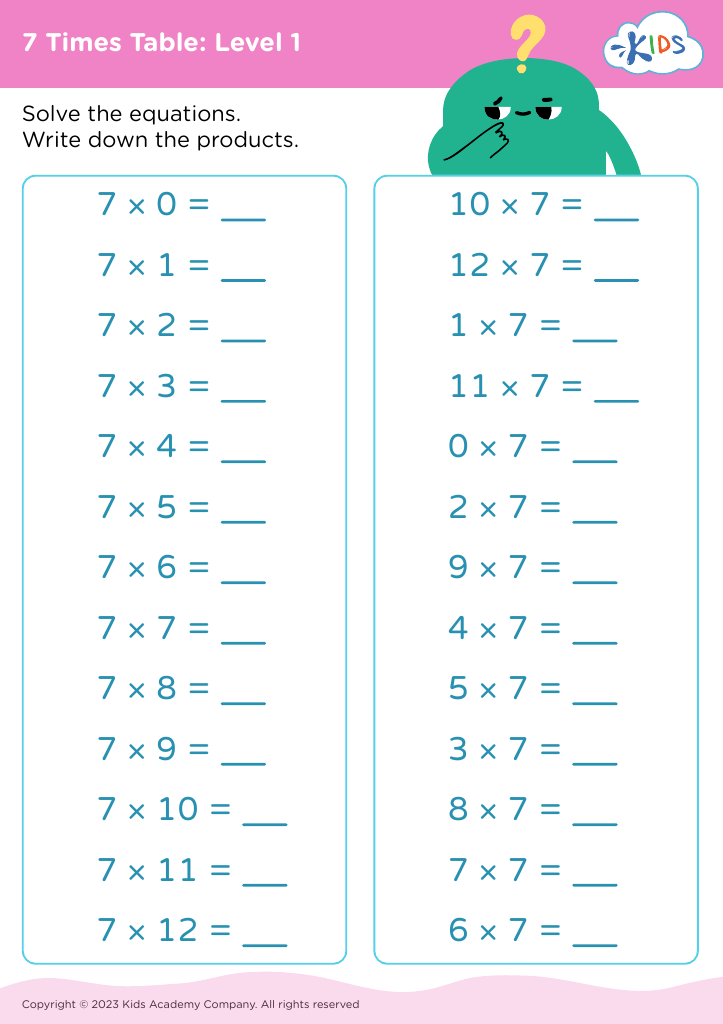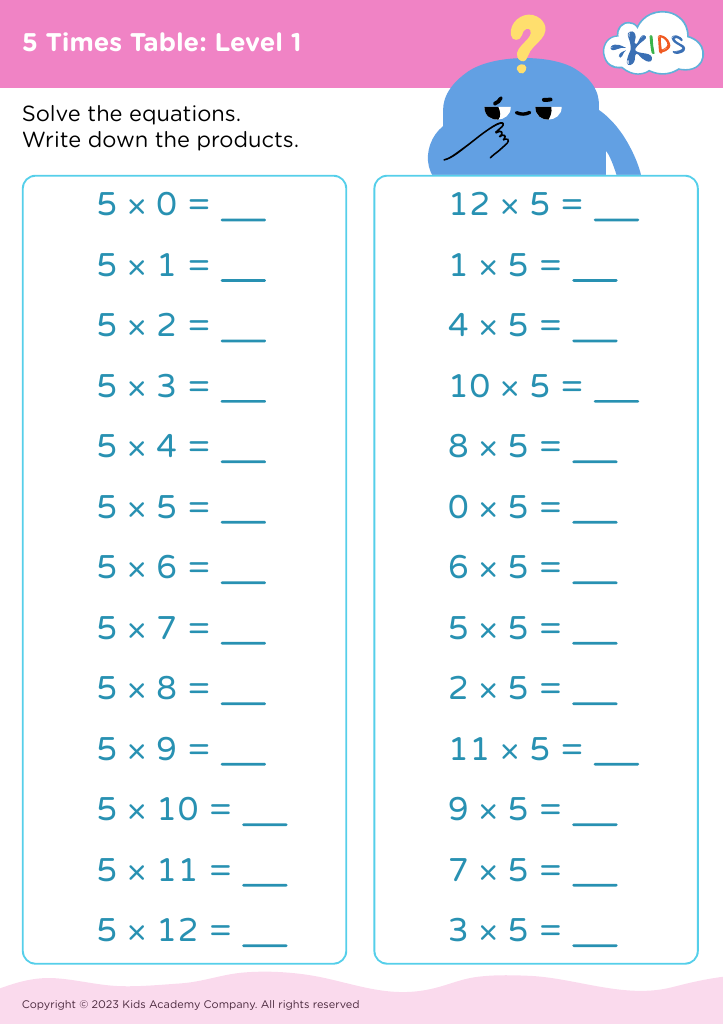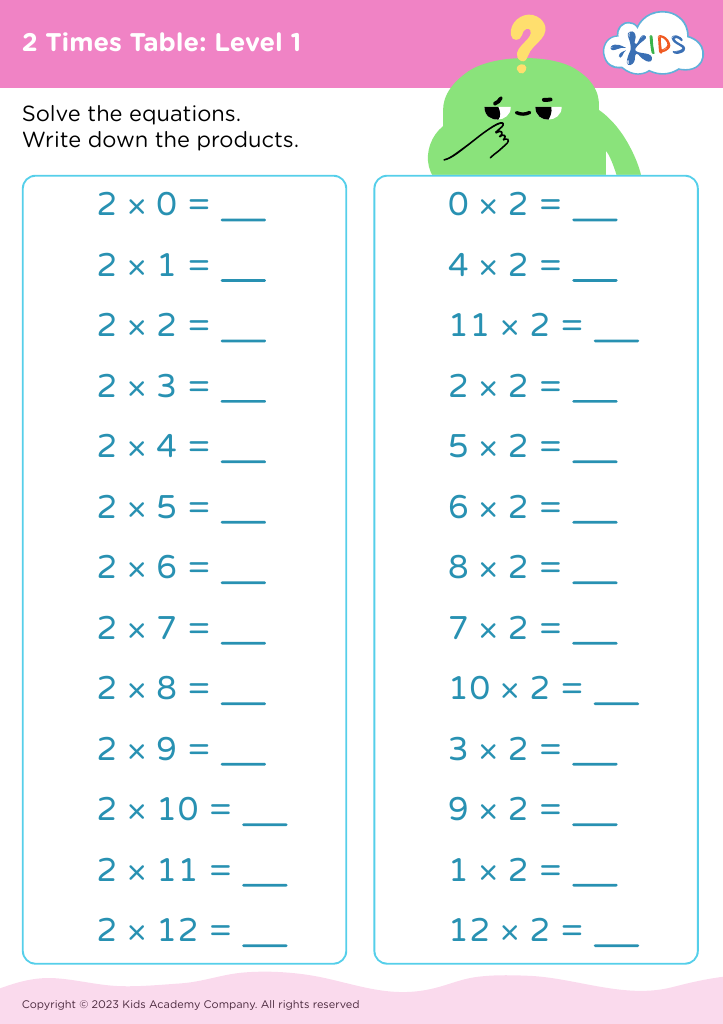Understanding times tables Basic Times Tables up to 12 Worksheets for Ages 7-9
3 filtered results
-
From - To
Explore our comprehensive "Understanding Times Tables" resources designed specifically for children aged 7-9. Our worksheets focus on basic times tables up to 12, making math learning engaging and accessible. Each worksheet incorporates colorful designs and interactive exercises, encouraging young learners to practice multiplication skills effectively. These resources help deepen comprehension, boost confidence, and promote mastery of essential math concepts. With a variety of activities that cater to different learning styles, students will find joy in developing their foundational math abilities. Perfect for classroom use or at-home learning, these times tables worksheets are essential tools to enhance your child’s mathematical journey!
Understanding basic times tables is essential for children aged 7-9 as it forms the foundation for their mathematical skills. Mastery of multiplication tables up to 12 enhances children’s ability to tackle more complex mathematical concepts, such as division, fractions, and algebra, in later years.
When children understand their times tables, they gain confidence. This confidence translates into a positive attitude towards math, reducing anxiety that can often accompany mathematical tasks. Additionally, understanding these fundamentals can reinforce logical thinking and problem-solving skills, which are valuable both in and out of the classroom.
Moreover, fluency in times tables supports real-world applications. Children use multiplication in everyday tasks—like calculating costs while shopping, splitting bills, or adjusting recipes—which emphasizes its practicality.
For parents and teachers, fostering times table knowledge encourages a supportive learning environment, enabling children to explore math with curiosity and confidence. Regular practice not only strengthens memory but also enhances cognitive connections, ensuring long-term retention.
Ultimately, investing time in understanding times tables lays a crucial groundwork for future academic success and nurtures a love for learning, empowering children to become capable and enthusiastic learners in all subjects.












